Ever wonder how you can save electricity? It doesn’t have to be expensive or complicated! In fact, there are many no- and low-cost ways you can use less energy. Here are 80 tips to have you save energy and money year-round.
Heating
Heating your home accounts for more than 30 percent of an average home’s energy bill – the single biggest energy expense in your home. Here are some ways that you can be more energy-efficient when heating your home:
- Turning the thermostat down about one degree saves about 2 percent on your heating bill. Turning it down five degrees saves about 10 percent.
- To save energy, set your thermostat at 68° F in the winter and 78° F in the summer, if possible.
- Set your thermostat cooler overnight.
- A programmable thermostat lets you easily lower the temperature when no one is home and while you’re sleeping. You could save as much as 20% on your heating costs.
- A tightly sealed home keeps the air you heat or cool inside and the outdoor air outside. Make sure your walls and attic are properly insulated. Adding insulation is one of the best savings measures you can do.
- Sealing leaks in your air ducts can reduce heating costs by up to 20 percent.
- Electric outlets let cold air into the house. Remove the outlet covers and insert special insulation underneath. Use special insulating plugs in outlets that are not being used.
- Your house will not warm up any faster if you raise the thermostat setting. When your heating system is on it runs at the same rate regardless of the temperature setting.
- Regular maintenance of your heating and cooling system will improve its efficiency and extend its life. Have your system inspected and serviced each year in the spring or early summer by a professional technician. Keep in mind that the longer you put off service, the less efficient your system becomes and the more money you will spend running it.
Lighting
Did you know about 10 percent of your electricity bill is spent on lighting? Here are some easy ways to save energy.
- Switch to light-emitting diode (LED) bulbs. LEDs use up to 75 percent less energy and last up to 20 times longer than traditional incandescents. Because they’re so energy-efficient, LEDs can save you up to $135 over the life of the light bulb.
- Keep light bulbs clean. Dirt can absorb as much as 50 percent of the light.
- When buying new lighting fixtures or bulbs, look for the ENERGY STAR® label. They are the most energy-efficient on the market.
- Turn off the lights when you leave a room. This energy-saving measure has been around since Edison, and it’s as effective as ever.
- Have trouble remembering to turn the lights off? Occupancy sensors automatically switch them off once you leave a room – saving you money.
- Operating outdoor lights all night adds up. Use outdoor lighting with motion sensors.
- Timers that automatically turn lights on and off can reduce your energy use and improve safety by making a house seem occupied even when you’re away.
- Unplug unnecessary lights. When unplugging lights, pull on the plug not the cord. Pulling on the cord will damage it and create a safety hazard.
- Keep lights off during the day. Use daylight whenever possible, rather than turning on overhead lighting.
- Buy ENERGY STAR light fixtures and lamps; they can use one-quarter of the energy traditional fixtures use.
Home Electronics
About 75 percent of the power used by electronics is wasted energy called “phantom power.” Don’t let phantom power raise your electricity bill.
- Use smart power strips with electronics such as your home entertainment center and computer. Smart strips automatically power down electronics you’re not using, while continuing to provide power to those that need it.
- Unplug chargers and power adapters when not in use. When your cell phone, digital camera or laptop is finished charging, the charger still draws energy unless you unplug it.
- Make sure your computer’s “sleep” mode is enabled. The computer will switch automatically to a low-energy mode when you’re away, cutting energy usage by more than half.
- Screensavers don’t save energy. The best way to reduce your computer’s energy use is to turn it off when you are not using it.
Appliances
Energy-efficient appliances and equipment can save money for years to come. If you’re purchasing a new appliance, check out the ENERGY STAR® models. They help you go green by using less energy. Here are some low-cost and no-cost ways to save:
- Check refrigerator and freezer temperatures to make sure they are not wasting energy. Refrigerators should be 36° F to 38° F and freezers should be 0° F to 5° F.
- Keep refrigerators and freezers away from heat-producing appliances or direct sunlight and they will not have to work as hard to keep things cold.
- Unplug kitchen appliances you’re not using. For example, coffee makers draw electricity 24/7. If you don’t use your coffee maker’s timer for automatic brewing, unplug it when you’ve finished brewing your coffee.
Kitchen
Remember that each of your appliances has two price tags: the purchase price and the price you pay to run that appliance over its lifetime. Choosing the most energy-efficient appliances will help reduce operating costs for years to come. Other tips:
- When you’re cooking, don’t open the oven door to take a peek. Each time you open the oven door the temperature drops 25 to 50 degrees and your oven uses more energy.
- A clean oven cooks more efficiently. Keep drip pans and oven surfaces bright and shining.
- Preheating the oven is only necessary for baked goods that require a precise starting temperature. If you must preheat, keep in mind that most ovens preheat in 10 minutes or less.
- Turn off your oven a few minutes before the cooking time is up. The oven will retain enough heat to finish cooking your meal.
- Use the microwave for smaller quantities of food. Cooking a potato in an electric oven costs about 10 cents. In a microwave, the cost is about 2 cents.
- Glass or ceramic pans are more efficient for cooking than metal pans. You can save money by lowering the oven temperature by 25 degrees and still cook in the same amount of time.
- In the self-cleaning mode, your oven reaches temperatures of 850 degrees. You can save energy by starting the self-cleaning cycle after cooking, while the oven is still warm.
- Boiling water doesn’t get any hotter, so once your water is boiling you can turn down the burner.
- Thaw frozen foods in the refrigerator instead of the oven. It takes longer, but you’ll save energy. If you are really pressed for time, use the microwave for thawing.
- The fridge and freezer account for almost 6 percent of the average home’s utility bill. Stick to the right temperature. Keep your fridge between 36° F and 38° F. Set your freezer between 0° F and 5° F.
- Oversized appliances waste energy. Choose an extra-large dishwasher or fridge only if you have a large family that needs it.
- Use an exhaust fan to pull hot air out of your kitchen while cooking. The savings in cooling costs outweigh the cost of running the fan.
- Make sure your refrigerator has enough room behind it, and if you have have an older model, vacuum behind your refrigerator at least once a year to remove dirt and dust from the coils. Dust buildup not only increases energy use, but it also may cause the unit to break down.
- Use your dishwasher. You can save 5,000 gallons of water each year and $40 in utility costs instead of hand-washing dishes, according to ENERGY STAR.
- Let your dishes air dry; if you don’t have an automatic air-dry switch, turn off the control knob after the final rinse and prop the door open slightly so the dishes will dry faster.
Water Heating
Water heating is the second largest use of energy in most homes. Check out these ways to reduce that expense:
- Set the water heater thermostat to 120 degrees. It’s one of the easiest ways to save.
- Ninety percent of the energy used by a washing machine is to heat the water. Go green by washing clothes in cold water, which cleans clothes just as effectively as warm or hot water in most situations.
- Wrapping your water heater with an insulating blanket can help you save on your electric bill. To see if your tank needs insulation, place your hand on the tank. If it feels warm, a blanket could help.
- Insulate your hot water pipes. It’s easy to do and inexpensive. Pipe insulation made of fiberglass or foam can be found in building supply stores.
- Minimize water use while you’re brushing teeth, shaving and washing your hands.
- Stop the drips. A faucet that drips once per second can waste 400 gallons of water a year. If the drip is hot water, that will cost you if you have an electric water heater.
- Replacing older showerheads with low-flow units could save a family of four as much as 15,000 gallons of water per year, reducing water heating costs by over $150.
- If you’re going on vacation, turn down the thermostat on your water heater. If there is no risk of freezing you can turn it off completely when you’ll be away for several days.
- Buy a water heater that fits your needs. If you buy one that’s too big you’ll pay to heat up water you don’t need.
- Take short showers; they use less hot water than baths.
Laundry
There are two ways to reduce the amount of energy used for washing clothes: use less water and use cooler water. Here are some tips:
- Cold water can clean clothes just as effectively as hot water in most situations. Wash in cold water to save energy and money.
- Two small loads of laundry use about twice the energy as one full load. By combining loads together you reduce your energy use.
- If you have to wash a partial load, be sure to match the load setting on your washing machine to the size of the load. The load setting determines how much water is used.
- If you are thinking about a new clothes washer, look for ENERGY STAR® models. These are the most energy efficient models on the market and can cut utility bills by an average of $50 per year.
- Dry towels and heavier cottons in a separate load from lighter weight clothes.
- Don’t over-dry your clothes. If your machine has a moisture sensor, use it.
- Consider air-drying your clothing on clothes lines or drying racks. Plus air drying is recommended by clothing manufacturers for some fabrics.
Water Conservation
- Fix leaks. Small leaks add up to many gallons of water and dollars wasted each month. Water conservation saves energy and money.
- Use water-saving faucets, showerheads and toilets to save water.
- If buying a new water heater, always buy the most efficient model possible.
- When landscaping, use plants native to Pennsylvania that require minimal watering and possess better pest resistance. If local code allows, consider diverting “gray water” for irrigation.
Cooling
Nearly half of the average home’s electricity use goes to cooling and heating the home, according to ENERGY STAR. If you’d like to reduce your cooling costs, try these tips:
- Before you turn on the air conditioner, reduce your need for cooling. Use fans and natural ventilation first.
- A breeze on a non-humid summer day can keep you cool if you’re able to open the windows. Instead of turning on the air conditioner, open doors and windows on opposite sides of the house for cross-ventilation.
- Clean your filters monthly. Dirty or clogged filters block airflow and reduce efficiency.
- Fans use less energy than air conditioning. Use a ceiling fan if you have one because they are more effective than other fans.
- As long as indoor humidity is not very high running a ceiling fan allows you to set the thermostat four degrees higher without a noticeable change in comfort.
- If you are thinking about a new air conditioner, look for ENERGY STAR® models. They are the most efficient on the market and will save energy.
- Your house will not cool any faster if you lower the thermostat setting. Lowering the thermostat just makes the air conditioner run longer and use more energy.
- Do not add heat or humidity to your home, particularly during the hottest parts of the day. For example, turn on the dishwasher at night or when you leave the house.
- Each degree you raise the thermostat on your air conditioner saves 2 percent on your electric bill. Set your thermostat at 78 degrees or higher, if possible, for maximum savings.
- Close drapes and shades on windows during the day to keep heat from the sun out of your house. In the evening, open drapes and shades to let heat escape through the windows.
- Use a dehumidifier instead of turning on the air conditioner. You will be comfortable at higher temperatures if you reduce the humidity in your house.
- Use an attic fan to get rid of heat buildup. Heat from the attic eventually finds its way into your home.
- Room air conditioners work best when they are not exposed to the sun. Install your air conditioner on the north side of the house or take advantage of shade from trees.
- Make sure room air conditioners are installed tightly to avoid the cool air escaping. Seal any gaps along the sides of your room air conditioners with foam insulation. Your air conditioner needs to work much harder if the cool air is escaping.
- When you’re using central air conditioning, a programmable thermostat allows you to adjust the temperature when you’re away or sleeping.
- Look around the house and check the air vents and registers. If they are blocked by furniture or drapes, the air will not reach the rest of the room.
- Make sure air conditioner thermostats are not near electronics or other items that produce heat; the thermostat will read higher than it should.
- You may be able to lower your cooling costs by switching light bulbs. LEDs emit very little heat, unlike traditional light bulbs.


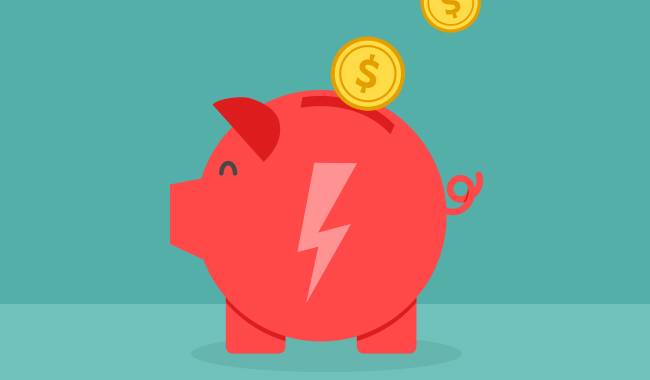
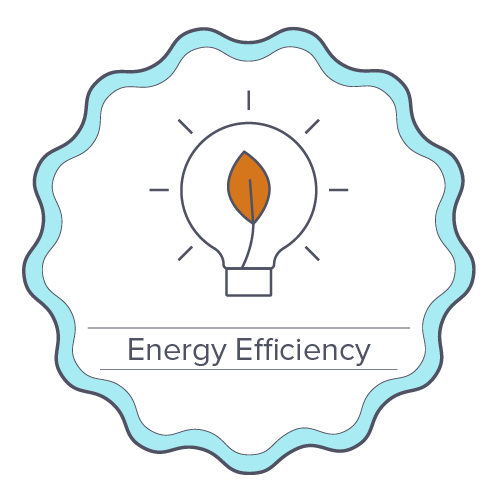


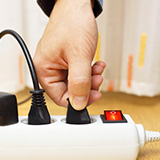
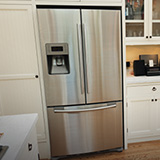

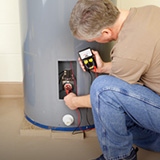


Why do you not give advice on solar panels? We have wanted to install as we believe our property is ideal! We have not been encouraged or been able to get info from pPL.
Thanks for contacting us. We support solar generation projects and work to have those projects safely connected to the electric delivery system. We just ask that you complete and submit a form on our webpage to make sure the equipment meets certain criteria, such as making sure it’s compatible with our delivery network. You can find the form here: https://www.pplelectric.com/at-your-service/electric-rates-and-rules/customer-owned-generation.aspx
Our bill for the previous January was 534 dollars. That’s absurd we have an outside wood boiler, that heats our home and hot water.No electric heaters, but I think that people on a budget that have oil heat hooked up heaters thinking it’s free and can’t afford oil. So everyone is gonna pay now with rate hike and pay for other people that hooked up electric heaters
My pet peeve is hearing all of this about using a fan to reduce the need for air conditioning, but you never tell people to turn off the fan wen you leave the room! My husband is always turning on the celing fan in the bedroom and then going to the living room to watch TV, this is a big waste of electricity but I can’t convenience him because he hears fans save electricity
Barbara, you’re absolutely right. Ceiling fans should be shut off when you leave the room to save energy. We have a saying: “Fans cool people, not rooms.”
Is there a way to test a home water heater to see how efficient it is?Our electric bill is always a great deal higher than our friends & family and we’re trying to figure out why. Thank you
Hi, Tina. Thanks for visiting the blog and thinking about energy efficiency. Water heaters are fairly big energy users in the home. Your water heater may still have an energy efficiency rating sticker on it. You also might have a general idea of how old your water heater is. You may be able to take steps to increase your water heater’s efficiency such as insulating the water pipes or reducing the temperature on the water heater if it is set high. Other reasons you might use more energy than friends and family would be if you do more laundry than they do (clothes dryers are big energy users), if you have more electronics constantly plugged in, if you cook more often with an electric stove, if you have more than one refrigerator/freezer, if your home needs insulation/weatherstripping, and the setting of your thermostat and age of your heating/cooling system. We hope that helps!
I am looking for the wrap program application. I was pre approved over the phone and told I could find the application here but am unable
Good Morning Ryan, You can complete a WRAP application online under http://www.pplelectric.com/wrap. An alternative to complete an application and follow up on the status is to call our WRAP program weekdays 8am -6pm at 1-888-232-6302. Thank you!
For years I’ve had an inexpensive wall switch for my garage door opener, but I’ve never seen this idea talked about. There’s no need to keep the opener powered up when you’re home. I just walk from my kitchen into the garage and power up. Come home and power down.
I really like tip number three, because I think it’s often forgotten. You need to clean your filters regularly to make sure the system doesn’t get dirty or clogged. That will definitely make it easier on your a/c system when it is trying to cool your house down.
As a ppl electric customer, can you tell me how much it costs to run a box fan per hour ?
Good Afternoon Mary, You can read more and use the Government’s Appliance Energy Calculator under https://www.energy.gov/energysaver/maps/appliance-energy-calculator. This is a simplified tool to estimate the cost for different appliances in your home. PPL offers an online energy audit that provides saving tips specific to your home under https://www.pplelectric.com/assessment. Thanks for checking with us!
So I have followed all the above plus turning the air conditioner at night and when I am away during the day and my electric bill still doubles every June through August like clockwork.
Good Afternoon JoAnn, Usage increase during the summer months is almost always due to use of air conditioning, fans & dehumidifiers. We provide Energy Audits online that provides energy saving tips that are specific to your home under http://www.pplelectric.com.assessment. You can also view your daily & hourly usage online to determine the time of day/hour that is contributing to your highest usage and make changes to lower your usage under http://www.pplelectric.com/analyze. If you prefer to speak with a Representative, please call our Energy Education team weekdays 8am -5pm to review this with you @ 1-800-342-5775 option 2. Thanks for checking in with us!
Good afternoon. I really need your help in trying to conserve energy.
During November of 2014, I bought a capecod home with a family room addition that has a cathedral ceiling and was built (unknown to me until after the sale was final) on a decking system. I was present during the three hour home inspection. Access under the addition appeared to look like it was a blocked foundation…..what a surprise when I had to have extensive work done in 2015 to secure the decking system and totally rebuild the patio and retaining wall behind the house. The addition can be closed off from the rest of the house with glass doors.
In 2014/2015, I also had the attached garage insulated, drywalled, baseboard heat installed, and it has a heat pump. The garage doubles as my doggie room when I am not home. In 2018, I had all of the windows replaced in the entire home. There is also a craft room/mudroom off of the garage that has baseboard heat. I have a second refrigerator in there that I’ve been using since Covid began last year.
I’ve been told by my HVAC contractors that my three heat pumps will not perform well if the outside temperature is too cold. They recommended that I may want to use my baseboard heat. Should I use both simultaneously during extremely colder temperatures? Or, only use the baseboard during extremely cold weather? I do have a ceiling fan in the first floor addition and my first-floor bedroom.
Also, at what temperature should I set my upstairs baseboard heat during the winter? There are no heat pumps that service that floor. There is a full-size bath on that floor.
My basement has no windows and no exterior exit. I keep a dehumidifier running 24/7. Should I set the baseboard in the basement at 60 degrees or less to prevent pipes from freezing?
Thank you for your help!
Good Afternoon Toni, HVAC contractors are an excellent source to provide advice on using heat pumps in the winter months specifically when the temps drop below freezing. We can provide some links for energy saving tips and to monitor your daily & hourly usage that will be helpful. Please review your daily & hourly usage under http://www.pplelectric.com/analyze. You will be able to view the time of day your usage is highest contributing to an increase in usage/bill. You can also complete a home profile that will provide energy saving tips specific to your home under http://www.pplelectric.com/assessment. Check out tips to save energy and money at savewithppl.com. Read more about heat pumps and efficiency tips under http://www.energystar.gov. Also, if you would like to speak to a PPL Representative to discuss this further, please contact us at 1-800-342-5775 weekdays between 8am-5pm. Thank you!
Hi PPL, thank you for trying to help your customers in saving money. Do you still provide the free energy saving kit like you have in the past? Thanks for your time!
Good Morning Brigitte, We still offer our energy saving kit. Please read more under https://www.ppleasysavings.com. If you are would like to speak to a Representative regarding free energy saving measures, please contact our WRAP program weekdays at 1-888-232-6302. We appreciate you reaching out to us!
I am just wondering how my March 2022 usage is sooo much higher than March 2021 when I have had my furnace off since the second week of March? No space heaters were used or any other additional electrical devices from the norm were utilized?
Good Morning Roxann, We understand your concerns. Please review your daily & hourly usage under http://www.pplelectric.com/analyze. You will be able to view the time of day your usage is highest contributing to an increase in usage/bill and make lifestyle adjustments. Also, check out tips to save energy and money at savewithppl.com. We recommend speaking to an Energy Education Specialist to review your bill in more detail with a Home Energy Profile at 1-800-342-5775 (say Energy Education) Thank you!
I’m interested in having someone contact me to discuss ways to decrease my bill.
Good Afternoon Susan, We have an Energy Education team you can contact that can review your usage to reduce your bill available weekdays 8am-5pm at 1-800-342-5775 (say Energy Education). In the interim, please view your daily & hourly usage online under http://www.pplelectric.com/analyze. You will see what time of day your usage is highest and can make adjustments to lower your usage. Also, review tips on ways to save under https://www.pplelectric.com/site/Ways-to-Save/Rebates-and-Savings-Programs/Tips-to-Save. Thank you!
I need help with decreasing my bill it is unaffordable. Thank you..
Good Morning Karen, If you have a web profile in place for your account, please review your daily & hourly usage under http://www.pplelectric.com/analyze. You will be able to view the time of day your usage is highest contributing to an increase in usage/bill. You can also read about ways to save under https://www.pplelectric.com/site/Ways-to-Save/Rebates-and-Savings-Programs/Tips-to-Save. Also, review and apply for assistance programs under https://www.pplelectric.com/billhelp. If you would like to speak to a Representative on our Energy Education Team to review this further, please contact us at 1-800-342-5775 between 8am-5pm weekdays. Thank you for reaching out to us!
Does PPL pickup/purchase your old refrigerator?
Good Afternoon Michael, Please read about our appliance recycling program for refrigerators and set up an appointment online under http://www.pplelectric.com/recycle or call our Appliance Recycling Team weekdays 8am-5pm toll free at 1-877-486-9204. Thank you for reaching out to us today!
thank for providing tips to save
Help to my bill
Good Morning, Please read more and apply for assistance programs under https://www.pplelectric.com/billhelp. Our OnTrack program (if you meet the financial criteria) offers a lower monthly bill based on family size, income and electric usage. Operation Help provides a credit to your account. LIHEAP is government funding with money that would post directly to your account if approved. Also, read about The Emergency Rental Assistance Program (ERAP) that provides federal funding to help individuals affected by the COVID-19 pandemic. Information on how to apply is on our website at http://www.pplelectric.com/erap. Thank you for reaching out!
looking foward to moving in. 11-1-2022
I like to switch heating company to your company
Good Afternoon David, If you live in a location in Pennsylvania where PPL Electric provides service, you can set up a new account online under https://www.pplelectric.com/moving or call us weekdays 8am-5pm at 1-800-342-5775 (say Moving) during the prompts. Thank you!
Thank you.